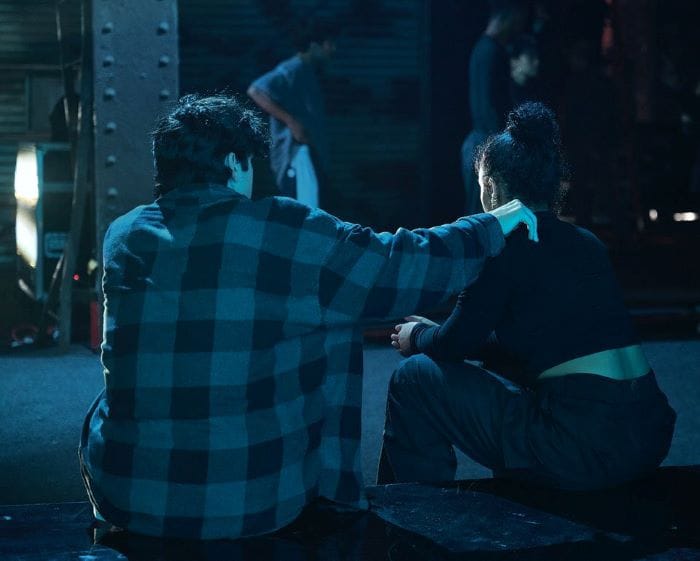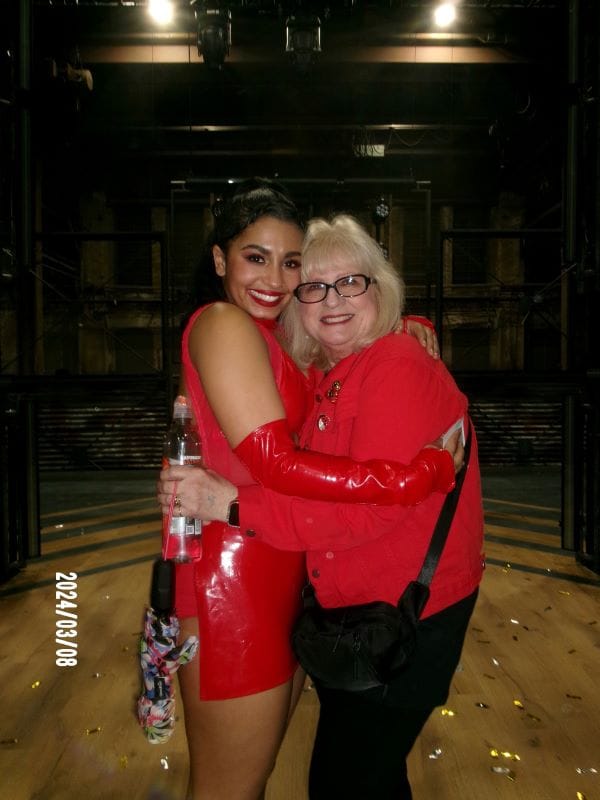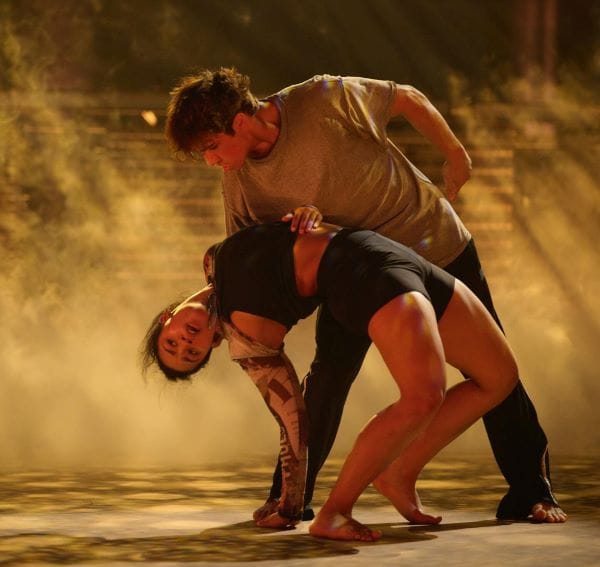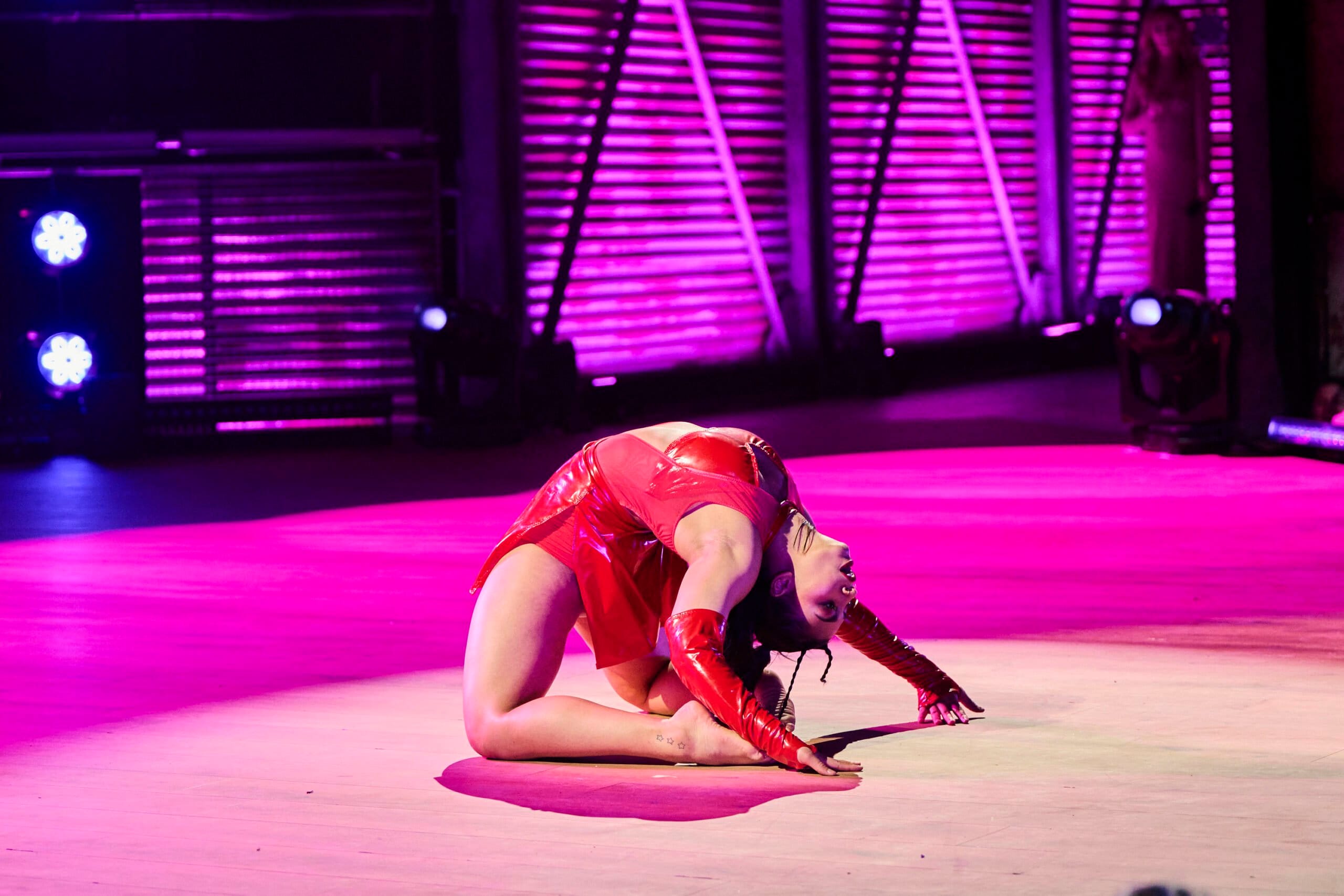Dakayla Wilson: Letting Kids Pave their Own Paths
Parenting is challenging, embodied work. Amidst society’s current culture of achievement, parenting’s challenges expand. Concurrently, kids’ autonomy and free time contract (to almost negligible levels). Of course parents want children to succeed.
Within achievement culture, however, efforts are misguided and counterproductive. The mother of a competitive dancer and soccer player, I also am in achievement culture’s throes—working to cultivate the best blend of freedom and training.

Looking for Things to Do in Tampa Bay?
>>This Weekend’s Top Picks
>>Holiday Fun in Tampa Bay
>> 40+ Free Things to Do with Kids
Jonathan Haidt’s work elucidates on The Great Rewiring of Childhood. Occurring from 2010-2015, this period altered kids’ social habits, role models and both emotional and physical well-being. Whether parenting Gen Z (born 1995-2010) and/or what some term Gen Alpha (born 2011-present), this Great Rewiring—coupled with achievement culture—matters for us all.
Kids are increasingly anxious. Parents are increasingly “snowplow parenting”—overly involved and attempting to remove all obstacles. However, seeing our kids actualize their full potential with autonomy and confidence means removing parental interference.
For children to successfully and independently navigate adult life, childhood must include time for exploring varying healthy outlets and learning from non-parental adults (without parents’ intrusions).
These varied, obstacle course experiences are life’s training grounds.

Enter Dakayla Wison—runner up of Fox Television’s 18th season of “So You Think You Can Dance.”
A Tampa native, Wilson graduated from Bloomingdale High School in 2023 and, on June 21, from the CLI Conservatory in Southampton, Massachusetts. Her upbringing wasn’t obstacle free. Her progress wasn’t stifled by adult intrusion.
Raised by her grandmother, Debra Ann Wilson, Wilson has achieved notable success. She is autonomous, confident and, overall, well.
In what follows, Wilson illuminates how her grandmother’s somewhat hands-off approach helped the pair fluently navigate the unpredictable terrain that undergirds life’s competitive endeavors.
As parents, we must learn from our kids—and other youth—by listening and acting accordingly. Wilson’s experiences are applicable across many extra-curriculars. Raising people who engage with the world in emotionally and physically healthy ways means parents must stop blocking kids’ embodied experiences so kids can plow their own paths.

Tell us about your parents.
Dakayla Wison: My grandmother has taken care of me since I was 2—serving as my mom, dad, grandma, teacher—my everything. My biological parents couldn’t financially, physically or mentally take care of me and passed me along to her. At 7, I learned my biological mom passed away from drug and alcohol abuse.
I didn’t know what that meant and, confused because I thought my grandma was my mom, attended the funeral. The situation and relationships were eventually explained.
My father entered my life when I was 13; one of my half-sisters found me on Facebook. I don’t hold grudges. When he expressed interest in getting to know me, I accepted what occurred and we built a relationship.
My grandmother trusted my decisions. We have pasts and futures for a reason, and I focus on changing the events I can change.
What about meeting with your dad while filming SYTYCD?
Dakayla Wison: I knew he was nearby, so I messaged him. We only had one day off during filming, and we met for breakfast. He also attended the show, and I dedicated a self-choreographed solo to “My Immortal” to him.
It was his first time seeing me as a mature dancer who was putting everything out there.
Kids need healthy outlets. Do you remember when dance became that for you?
Dakayla Wison: When my dad entered my life again. His presence hit me—my biological parents were no longer just two question marks. At 12-13, I understood dance as something serious.
I was a poor communicator, unable to express my feelings to my grandma in words. If I could show her—anyone—in movement, they would understand. They would see the story—the pain—when expressed through dance versus description.

As you grew more involved in dance, did your grandmother do deep dives into conventions, training opportunities and local studios?
Dakayla Wison: No. She let me take the reins because I was dedicated. I chose intensives I wanted to attend, and I figured out logistics. I’d tell her my performance times and to bring herself lunch.
Do parents’ well-intentioned actions sometimes become barriers to kids’ progress?
Dakayla Wison: When parents become overbearing, yes. At conventions, I constantly see parents nudging kids about where to stand, what to wear and how to move. If the goal is kids enjoying what they’re doing, let them have freedom.
Nagging isn’t productive and kids’ self-image is already delicate. Parents can guide kids’ navigation of their passions without being controlling and potentially stifling kids’ potential.
How did your grandmother respond to your pursuing professional dancing?
Dakayla Wison: She wasn’t thrilled. She’s encouraged a plan B—like being a physical therapist. Still, she’s witnessed my passion for the craft and how disciplined I was in graduating high school a year early.
Though I applied to CLI without her knowledge, she saw I had the talent to make it and the willingness to put in the work. My offer to be on SYTYCD solidified her support. So far, it’s working out for me. My mind and heart are open to accepting opportunities coming my way.

How do you keep joy in what you are doing?
Dakayla Wison: Having other creative outlets and learning from other people. My grandmother calls me a learning hog because I’ve always enjoyed learning about different things. It’s key kids learn to be stubborn and fight for themselves, but collaboration is essential.
At the conservatory, I learn from people from around the globe—gaining inspiration from how they experience the world. A drive to learn from other people is indispensable. I also started journaling my thoughts and feelings, which allows me to reflect on my progress. The written pages capture my love for and readiness to fight for dance.
What about lessons on losing?
Dakayla Wison: I frame losses into learning experiences. What can I take away from those being recognized for excellence and how can I apply it? What made those who took third and fourth place different from me? We can look to others without beating ourselves down.
SYTYCD was most interested in having a good human. I take pride in being a genuine, high-spirited and positive person.
How can parents best support kids in competitive sports?
Dakayla Wison: Limit criticism so that kids communicate with you. We need assurance that our guardians are supportive because we won’t always know what to do next. Demonstrate openness to plans not working out. Reinspire children with new opportunities. Definitely let children have freedom to explore.
Summer Reading: “The Anxious Generation” by Jonathan Haidt
Summer Learning: Look into opportunities for camps and master classes with Wilson at the following Tampa Bay area dance studios:
- 5th Dimension Dance Center
- Soul Studios Dance
- Karl & DiMarco
- Tampa Bay Dance Academy
- Center for Dance Arts
Summer Lovin’: Follow Wilson on Instagram @dakaylannwilson
Originally published in the July 2024 issue of Tampa Bay Parenting Magazine.








